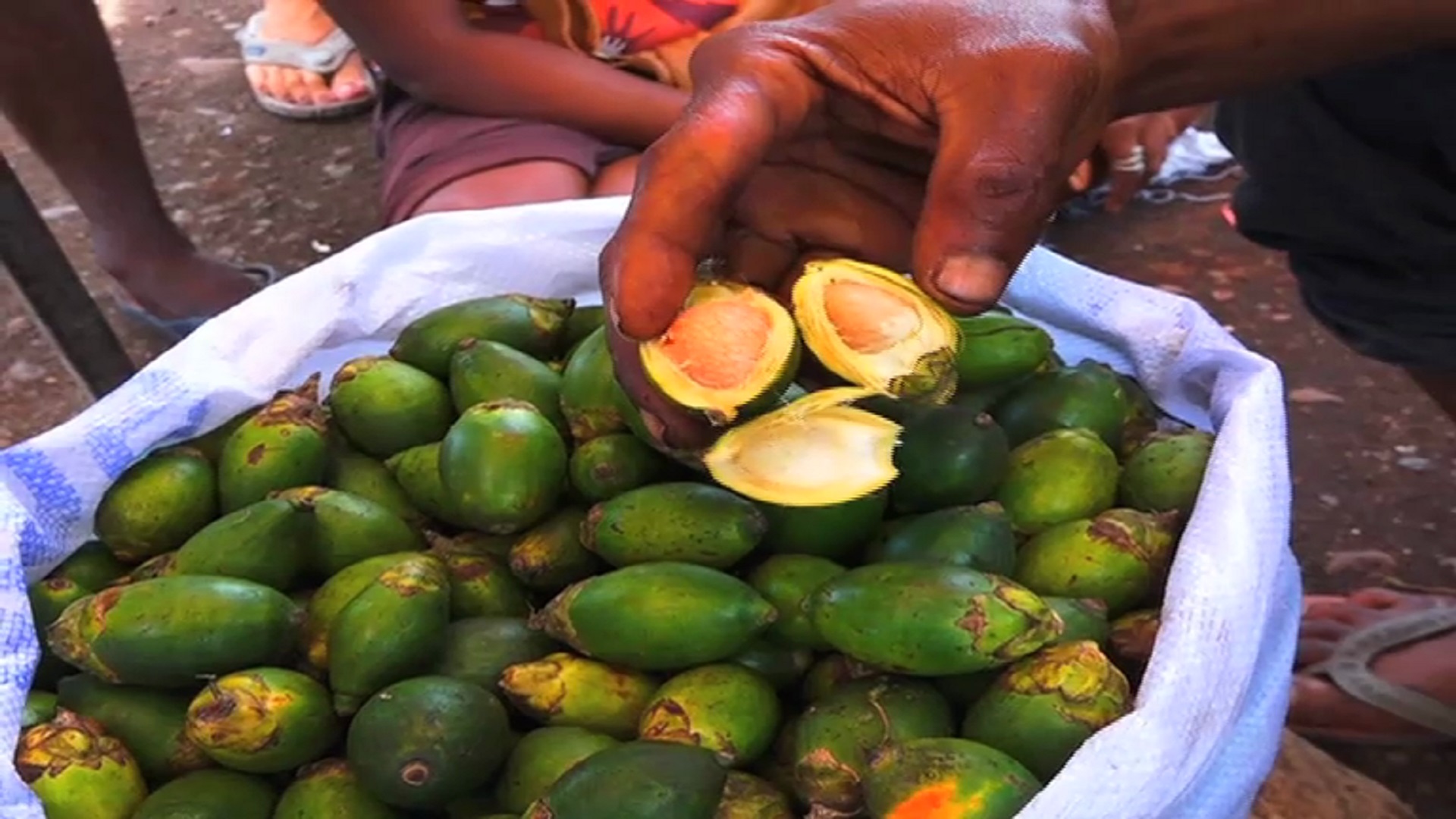Betel nut was a commodity in coastal communities of Papua New Guinea where it was grown and used. As per traditional mandate, a person would start using betel nut in their later teen years where the coming of age into adulthood is bestowed. The use came with responsibility, and moderation, as adults and the elderly exclusively use it to suppress hunger and for traditionally sanctioned activities. It was also considered the “food” of sorcerers.
People who had constant supply of betel nut enjoyed it with others to build relationships.
The areca nut was not sold and that included the pepper fruit and lime because of beliefs associated with sorcery. Indiscriminate spitting and idle waste disposal was shunned for the same reason.
In the colonial times, betel nut use in public places under the control of the government or missions was carefully watched. Workers in public and private did not use betel nut because it was prohibited by the European administration as unhygienic and unsightly.
With the coming of National Independence, Papua New Guineans became more mobile with the access of roads and increased economic activity. Highlanders, for instance, got introduced to betel nut although they could not plant it in the cooler climates that they lived in.
The appeal of betel nut made it a saleable commodity and people of all ages started using it. It is used at school, at work and in sport; it did not miss the discipline forces. The Disciplinary forces had to wear their beret in a certain way. If they wore shorts their socks were always pulled up and their teeth gleaned white, they were clean shaven and their boots shined. With their new found freedom, the rules changed.
Betel nut use today verges on matters of life and money. Its users may be in the millions. The addictive chemical property it contains means more users are recruited; with the age level chopping as low as 2 years old in many communities.
It has no taste and the mixture gives a pungent breath. The main benefit is euphoric; it is a drug that excites the nerves. As with etiquette, talking with mouthfuls of betel nut, spit or sweating profusely from it were considered bad manners and untidy. It is today not the case.
The betel nut has been described as ‘green gold’, and heavy users often put betel nut before other needs of their families. Many lives depend on its trade.
Fast forward to year 2017, betel nut usage, on the personal level, must be taken with moderation as its abuse can lead to health issues such as mouth cancer. Whilst on the economic front, management controls must be formed to tax the trade so that littering and risks for vendors can be minimised.


